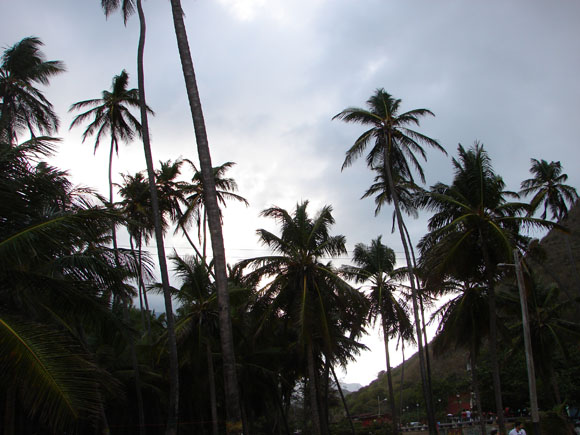
If in that distant September of two thousand and twenty-four, thirty years ago, someone had told me that I would live for a hundred years, I would not have believed it.
At that time I had just turned seventy, I was not in bad health but I did have some ailments that compromised my quality of sleep and the type of food I could eat. Added to that was living in a country where the health care system was in shambles. Most of the good doctors had emigrated due to political and economic problems, and the remaining staff was poorly trained. The hospitals offered a very poor quality of service.
However, at the beginning of the year two thousand twenty-five, the miracle that Venezuelans had been waiting for for twenty-five years took place: a break in the political forces that supported Bolivarian socialism led to the fall of that backward regime. In its place came several progressive governments. One after the other they made the necessary reforms to bring the country back into the wave of world progress.
The immediate impact was felt with the return to the country of the great majority of our professionals, who came better prepared than ever. They had taken advantage of the long exile to train in the countries that had received them. This exchange with new cultures had allowed them to understand our problems and they had had time to reflect on the solutions we needed.
In ten years the country had managed to get back on track, a gigantic investment was made in education and health, our quality of life had improved substantially, and our life expectancy had reached the level of advanced countries.

Meanwhile, the country was preparing for what would be an imminent change, the end of the fossil fuel era, in a short time our oil, which was so important during the twentieth century and until the first four decades of the twenty-first, would no longer be the country's main source of income.
By the year two thousand and forty, the world had become aware of the problem of climate change. Everyone, regardless of religious creed, ethnicity or political views, understood that the future of the species was seriously compromised.
A concerted effort by the international community succeeded in developing the technology to change the energy pattern. Oil began to be replaced by hydrogen from water, an efficient, cheap and non-polluting fuel.
Getting airplanes to fly on hydrogen power has resulted in carbon emissions being reduced to a minimum. Changes are already being seen in all natural environments and in the return to less severe climatic conditions. A return to a balance like the one that existed on the planet during the first decades of the twentieth century is being achieved.
Another great step that was taken in that same year was the beginning of a gigantic plan for urban renewal on a planetary scale.
In all countries, urban spaces began to be reorganized in order to achieve the "fifteen-minute city".
Large cities were divided into smaller units to ensure that all citizens could run their errands on foot, no more than a fifteen-minute walk from their homes, so that essential services such as hospitals, health centers, libraries, police services, parks, supermarkets and government agencies could be close by.
The project has been very successful. And as of this writing, in September of two thousand and fifty-four, more than sixty percent of the world's urban centers have this model. The impact of this new planning concept has produced a substantial reduction in energy consumption for transporting people.

Technological changes have also been noticeable. Now, for example, I hardly ever need to go to a health center. At the age of 100, I have the possibility of being monitored daily by an artificial intelligence application installed on my cell phone.
This application immediately detects any abnormality in my vital signs, and automatically sends an alert to my family doctor, who I can reach within ten minutes from my home. In addition, the same artificial intelligence application tells me the exact time to take my medication and reminds me to eat some of the foods I need to maintain optimal health.
For the youngest, augmented reality technologies offer them unusual experiences. With a small visor they can feel the experience of extreme experiences such as climbing Mount Everest. My great-great-grandchildren know more about these things than I do.
The change in living conditions has renewed hope for life on the planet. There is no longer so much insistence on conquering space to guarantee the future of the species. Many space exploration projects have been abandoned and those resources are being used for urban improvements.
There are still important problems to be solved. One of them is the population decrease, young people are not encouraged to have more children. We still see few children in our cities. And although the development of robotics has managed to solve, in many aspects, the lack of manpower, there is still a need for more replacement generation. There are activities that only young humans can do.
The world's great leaders are convinced that as living conditions improve, more people will trust in the future and will be encouraged to bring more children into a better world.
I am truly satisfied. Thirty years ago, the outlook was a bit frightening; all forecasts spoke of apocalyptic conditions. But fortunately things did not turn out that way. Every morning I am awakened by the sound of more birds behind my window.
I am publishing this post motivated by the initiative proposed by my friend @ericvancewalton, Memoir Monday, in its twenty-six week. For more information click on the link.
Thank you for your time.
Translated with DeepL.com (free version)





Logo creado por @themanualbot

Posted Using InLeo Alpha

